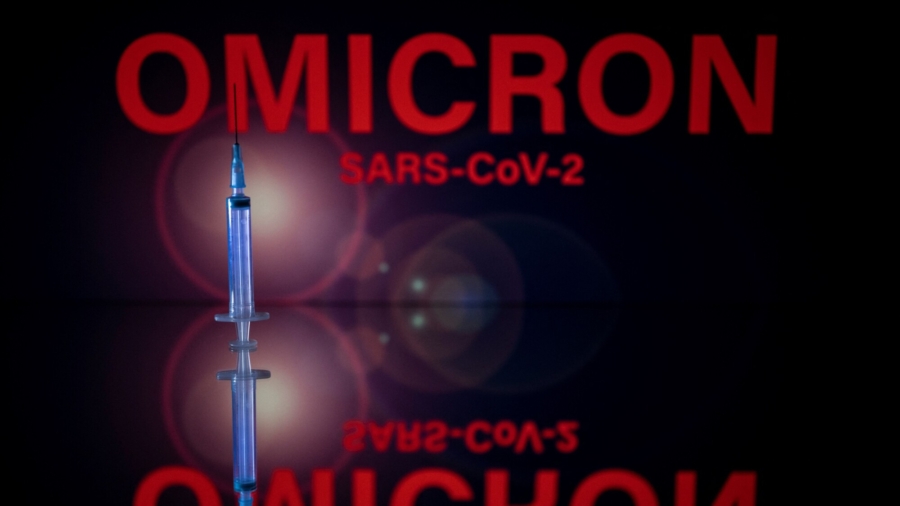A team of scientists in Cyprus has identified a strain of the CCP (Chinese Communist Party) virus that reportedly combines many of the characteristics of the Delta and Omicron variants, according to a professor of biological sciences at the University of Cyprus.
Leondios Kostrikis, who is also head of the Laboratory of Biotechnology and Molecular Virology at the university, told Cyprus TV network Sigma TV, on Friday that the discovery was named “Deltacron” due to the identification of Omicron-like genetic signatures within the Delta genomes, he said.
“There are currently Omicron and Delta co-infections and we found this strain that is a combination of these two,” Kostrikis said in the interview, which was reported by Bloomberg.
Kostrikis and his team have identified 25 such cases, according to the report. Statistical analysis shows that individuals who were previously hospitalized with COVID-19 are more likely to be reinfected with the new variant than those who have not. Kostrikis said it was not yet known exactly how infectious or pathological the newly-discovered combined strain is.
The researchers sent their findings to GISAID, an international database that tracks viruses, on Jan. 7, according to Bloomberg.
“We will see in the future if this strain is more pathological or more contagious or if it will prevail” against the two dominant strains, Delta, and Omicron, Kostrikis said. The professor said he also personally believes the highly-transmissible Omicron variant will also overtake Deltacron.
However, World Health Organization (WHO) COVID-19 expert Dr. Krutika Kuppalli said she believes that the new variant is “not real” and is “likely due to sequencing artifact (lab contamination of Omicron sequence fragments in a Delta specimen).”
“Let’s not merge of names of infectious diseases and leave it to celebrity couples,” Kuppalli wrote on Twitter.
The Epoch Times has contacted Kostrikis for comment.
Last month, researchers at Méditerranée Infection University Hospital Institute discovered another variant of COVID-19 with a large number of mutations.
In a study published Dec. 29, researchers said that the variant, known as B.1.640.2 or colloquially as “IHU,” was found in 12 people living in the same area of southeastern France last year who tested positive for COVID-19.
The first identified case in the group was a vaccinated male adult who had returned from travel to Cameroon three days before in mid-November and had begun to develop mild respiratory symptoms the day before diagnosis. Genome sequencing was carried out and revealed an atypical combination of mutations.
An analysis of the variant revealed it has 46 mutations along with 37 deletions to its genome.
However, scientists urged people not to panic, with Tom Peacock, a virologist at Imperial College London, noting that there had been no new sequences of B.1.640.2 uploaded before Christmas.
“This virus has had a decent chance to cause trouble but never really materialized (as far as we can tell at least…),” Peacock wrote on Twitter.
As of the week ending Jan. 1, Omicron accounts for 95.4 percent of COVID-19 cases in the United States, according to data from the Centers for Disease Control and Prevention.
Yet researchers at the Steve Biko Academic Hospital believe that the Omicron outbreak that is currently spreading across the globe may in fact signal the end of the acute pandemic phase of COVID-19, with the endemic phase following.
“The wave increased at a faster rate than previous waves, completely displacing the Delta variant within weeks and began its decline in both cases and hospital admissions in the fifth week following its commencement,” researchers said in their study published in December 2021. They added that there are “clear signs that case and admission rates in South Africa may decline further over the next few weeks.”
“If this pattern continues and is repeated globally, we are likely to see a complete decoupling of case and death rates suggesting that Omicron may be a harbinger of the end of the epidemic phase of the COVID pandemic ushering in its endemic phase,” the researchers added.
From The Epoch Times

